
The Federal Reserve raised rates by 25 basis points, or 0.25 percentage point, as was widely expected. Federal Reserve Chair Jerome Powell then held a news conference, in which he said that the economy's disinflationary process had started. To be sure, Powell added that it's premature to declare victors against inflation.
Federal Reserve Chair Jerome Powell made it clear during his press conference that the data the Fed is closely watching more than anything else is jobs data, said former Goldman Sachs chief operating officer Gary Cohn.
"He did go back and forth giving you both sides of the argument," said Cohn, a former economic advisor in the Trump administration. "The only thing he kept hanging his hat on was the labor market. At this point it feels like we are just labor dependent."
— Michelle Fox
Jerome Powell said he doesn't expect the Fed to cut rates this year, as some major strategists project.
"Given our outlook, I don't see us cutting rates this year, if our outlook comes true," the Fed chair said.
Powell also said he was "not concerned" about the bond market implying one more cut before a pause, because some market participants are expecting inflation to fall faster than the Fed does.
"If we do see inflation coming down much more quickly, that will play into our policy setting, of course," Powell said.
— Jesse Pound
The central bank is nearing the end of its rate hike campaign and was more dovish this meeting, according to Charlie Ripley, senior investment strategist for Allianz Investment Management.
A lack of clarity on future interest rate moves signals the Fed is nearing the end of is rate tightening cycle, Ripley said. After hikes end, he said the central bank will likely "sit tight while the economic data catches up to the policy."
"The Fed is essentially speaking out of both sides of the mouth as they signaled further increases are appropriate, but also acknowledged they will consider the cumulative amount of tightening in future policy decisions," he said.
Ripley added that the slowing pace of current rate hikes to 25 basis points is a "clear sign" that the central bank is more confident that current economic policy is having its intended impacts of tightening.
Taken all together, Ripley said the meeting "tilted slightly dovish."
— Alex Harring
Fed Chair Jerome Powell is bracing for growth this year, albeit at a "subdued pace."
"My base case is that there will be positive growth this year," he said during a press conference Wednesday.
— Samantha Subin
In a response to a question from CNBC's Steve Liesman, Chairman Jerome Powell said it is "certainly possible" that the Fed will keep its benchmark interest rate below 5%. The Fed's latest hike brings that Federal funds rate to a range of 4.50% to 4.75%.
Powell also said that he still thinks the Fed can get inflation back down to 2% "without a really significant downturn, or a really significant increase in unemployment."
— Jesse Pound
"We can now say I think for the first time that the disinflationary process has started. We can see that and we see it really in goods prices so far," Fed Chairman Jerome Powell said at a news conference Wednesday.
— Fred Imbert
Inflation is easing in some areas of the market but it's too early for the Federal Reserve to say the battle's been won, said Fed Chair Jerome Powell.
"It would be premature," he said. "It would be very premature to declare victory, or to think that we've really got this."
The disinflation process, he said, is in its early stages, but the "job is not fully done." Core services excluding housing have yet to experience disinflation, he added.
Powell also expects inflation to continue moving up in housing services, before moving down.
— Samantha Subin
Fed Chairman Jerome Powell said the central bank could conduct a few more rate hikes to bring inflation down to its target.
"We've raised rates four and a half percentage points, and we're talking about a couple of more rate hikes to get to that level we think is appropriately restrictive," Powell said. "Why do we think that's probably necessary? We think because inflation is still running very hot."
— Yun Li
"We think the Committee is signaling it has not yet seen enough to weigh a pause and is still oriented towards two further hikes – but is leaving open the prospect that further cumulative information that continues to support disinflation over the next two months could lead the FOMC to pause after March, skip May, and see how the Q2 data evolves before deciding whether to implement a final hike in June or not," Evercore ISI Vice Chairman Krishna Guha said Wednesday.
— Jeff Cox
Despite the Federal Reserve's aggressive rate hiking campaign, the central bank has more work to do, according to Fed Chair Jerome Powell.
"I would say that our focus is not on short term moves but on sustained changes to broader financial conditions," he said during Wednesday's press conference. "And it's our judgment that we're not yet at a sufficiently restrictive policy stance, which is why we say that we expect ongoing hikes."
— Samantha Subin
Powell acknowledged that there have been positive signs in recent employment reports even while labor data has remained strong but said it was too early to celebrate.
"It is a good thing that the disinflation that we have seen so far has not come at the expense of the labor market," Powell said, but added that the economy was still in an "early stage" of easing inflation.
He said that a decline in goods prices and data showing recent softening of the rental housing market is a "good story."
However, he said that the Fed doesn't "see disinflation yet" in the core services part of inflation, excluding housing.
—Jesse Pound
Market participants shouldn't expect rate cuts later this year from the Federal Reserve, suggested Jose Torres, senior economist at Interactive Brokers.
"While goods are experiencing sharp disinflation, commodities and services are actually accelerating, despite headlines screaming cooler inflation. In fact, the Cleveland Fed's nowcast on January headline CPI has it running at 7.6% annualized. Furthermore, today's job openings data suggest an incredibly resilient labor market," he said. "Inflation is not over, and neither is the Fed's battle against it."
— Michelle Fox
Jerome Powell has started his press conference by reaffirming the central bank's stance in the fight against inflation.
Powell was repeating comments from previous appearances. He said the Fed remained "strongly committed" to bringing down inflation, repeated the statement language about ongoing rate increases, and stressed the problems that inflation can cause for consumers and the labor market.
"Without price stability, the economy does not work for anyone," Powell said.
— Jesse Pound
Peter Boockvar, chief investment officer at Bleakley Advisory Group, said that the minor changes to the Fed statement should not come as a surprise to the market. However, he said that Chairman Jerome Powell will likely take an aggressive stance against inflation in his press conference.
Bottom line, Powell has been intent on making the FOMC statements as uneventful as possible and today was really no different with the slight changes stated in mentioning the inflation moderation but still 'elevated' rate. I believe Powell in his presser will remain with his boot on the neck of inflation but we know he's really no longer pressing down anymore outside of maybe one more time," Boockvar said in a note.
— Jesse Pound
JPMorgan Asset Management's David Kelly has long said that the Federal Reserve traditionally starts reacting to economic conditions too late, goes too high with increases and stays too long.
"They say that they acknowledge the long lags by which monetary policy affects the economy, but with inflation coming down and with consumption spending falling, with industrial production falling, they are still raising rates. That is obviously waiting too long," said Kelly, the firm's chief global strategist.
The Fed's post-meeting statement said officials will determine the extent of future hikes based on factors such as effects so far of the rate hikes, the lags in which policy has an impact, and the developments in financial conditions and the economy.
— Michelle Fox
Brandywine Global portfolio manager Bill Zox isn't convinced the Federal Reserve is even trying for a soft landing.
A soft landing would entail the central bank slowing the economy and tame inflation while preventing a recession.
"While they would never say so, they might prefer the restorative aspects of a recession and a proper bear market," he said shortly after the Fed raised rates again.
— Michelle Fox
The Federal Reserve vowed to keep fighting high inflation Wednesday, raising rates by 25 basis points. However, some market participants may be keying into one part of the Fed's latest statement which said that inflation "has eased somewhat but remains elevated."
That remark appeared to help the major stock averages off their session lows.
— Fred Imbert, Jeff Cox
The Federal Open Market Committee's latest statement left some key language unchanged, which may have contributed to the immediate negative reaction for stocks.
The Committee's statement still reads that "ongoing increases in the target range will be appropriate."
Elsewhere, the new statement did add that inflation "has eased somewhat."
See the rest of the changes here.
— Jesse Pound
The major U.S. stock averages briefly slid to their session lows Wednesday following the release of the Fed's latest monetary policy announcement. The Dow was last down more than 300 points, or 1%. The S&P 500 and Nasdaq traded down 0.5% and 0.3%, respectively.
— Fred Imbert
The Federal Reserve raised benchmark overnight lending rates by 25 basis points, or 0.25 percentage point, matching investor expectations. The hike brings the Fed's target range to 4.5%-4.75%, the highest level since 2007.
In its statement, however, the Fed kept language noting that the FOMC still sees the need for "ongoing increases in the target range." Market participants had been hoping for some softening of the phrase, but the statement, approved unanimously, kept it intact.
— Jeff Cox
Here's a snapshot of where financial markets stand heading into the Fed announcement at 2 p.m. ET:
(Numbers as of 1:45 p.m. ET)
— Fred Imbert
The Fed has been raising rates since March of last year, pressuring the broader market, as it tries to fend off rising inflation. However, some of the stocks hardest hit by rate hikes could be big winners if the Fed hints at a pause.
CNBC Pro looked back at the stocks that were hit the hardest in the five trading days after each of last year's Fed rate hikes, starting with the first quarter point increase last March. Of those, we took the worst median performance within that five-day period for each of 2022′s seven rate hikes.
Among those stocks are Paramount Global, Disney, and Warner Bros. Discovery.
— Michelle Fox, Fred Imbert
Markets have priced in a near-100% certainty that the Federal Open Market Committee will announce a 0.25 percentage point interest rate increase to conclude its first policy meeting of 2023.
What markets are unsure of is where the Fed goes from here. Traders are betting the central bank will hike a quarter point once more in March then stop, pause for several months, and then start cutting toward the end of the year.
Conscious that the fight against inflation is far from over, Chairman Jerome Powell could push back on the idea of a looser Fed so soon in the future.
— Jeff Cox
Got a confidential news tip? We want to hear from you.
Sign up for free newsletters and get more CNBC delivered to your inbox
Get this delivered to your inbox, and more info about our products and services.
© 2023 CNBC LLC. All Rights Reserved. A Division of NBCUniversal
Data is a real-time snapshot *Data is delayed at least 15 minutes. Global Business and Financial News, Stock Quotes, and Market Data and Analysis.



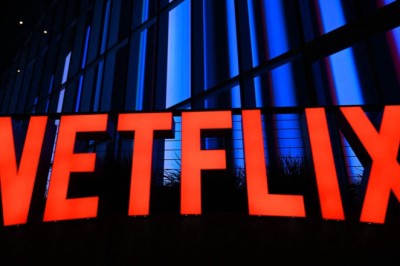
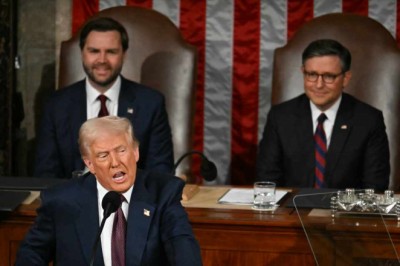
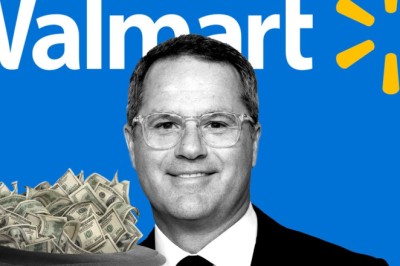
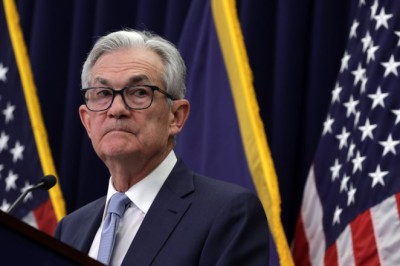
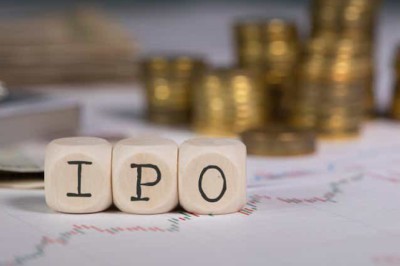
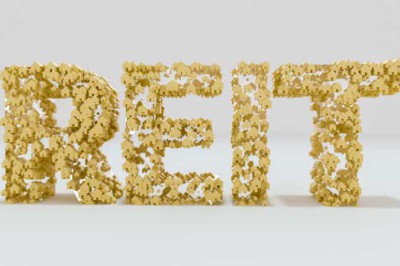




Comments
0 comment